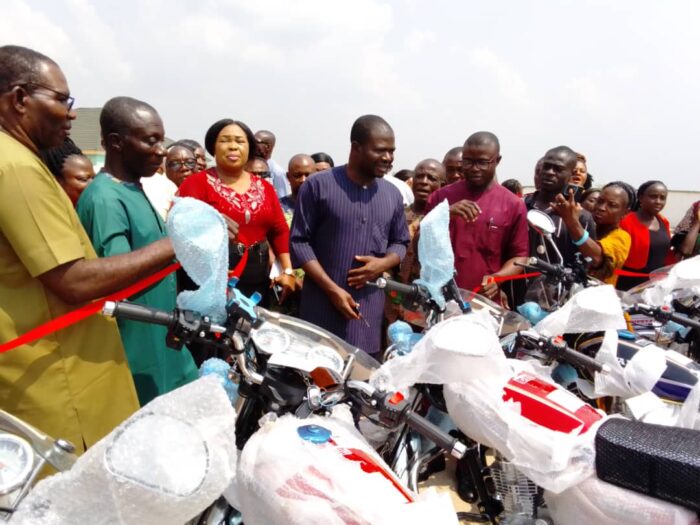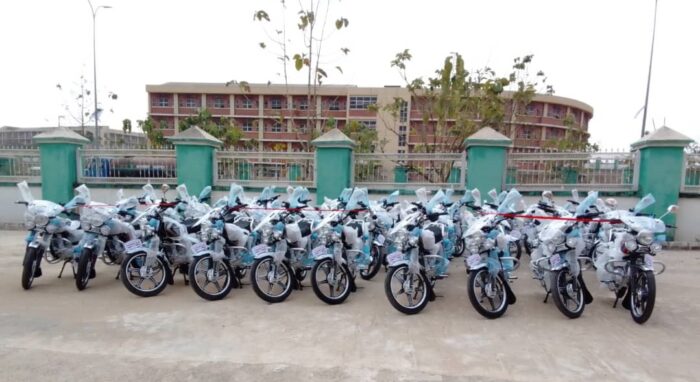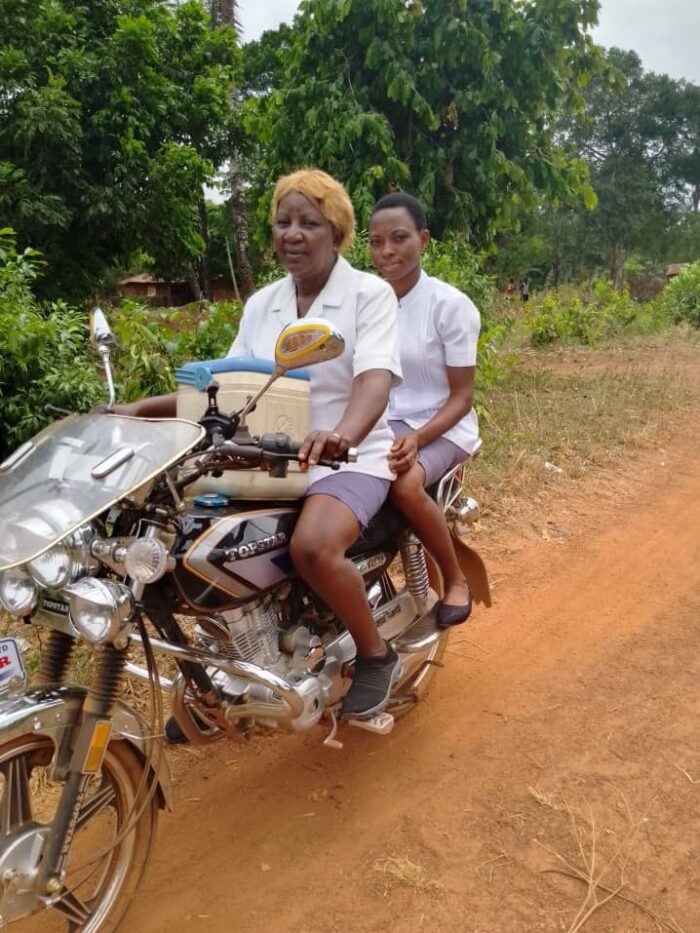Increasing Access to Health Care Facilities in Hard-To-Reach Communities in Ebonyi State

Many primary health care (PHC) facilities in Nigeria are situated in remote and rural areas, posing significant challenges for frontline health workers in accessing and delivering services. The situation is further complicated by the absence of reliable transportation systems to move patients from these isolated facilities to higher levels of care. As a result, residents of remote communities, like those in Ebonyi State, encounter significant barriers in obtaining timely and appropriate medical treatment.

The United States Agency for International Development (USAID) Nigeria Health Workforce Management (HWM) Activity advocated on behalf of the Ebonyi State Ministry of Health for the procurement of motorbikes for the Officers-in-Charge (OICs) of 40 USAID-supported PHC facilities. The advocacy efforts included stakeholder engagements, courtesy calls, and evidence-based dialogues. In rural and remote communities, these motorbikes ensured that the OICs could easily access their facilities, swiftly respond to emergencies, and transport patients to higher levels of care. They also help boost the retention and motivation of PHC workers, who frequently bear the cost of their own transportation.
Amagu Victoria, the OIC at Azuofia Millenium Development Goal Health Center seen in the photo below on the left, shared the following:
“My facility is hard to reach, so I spend nothing less than NGN 6,000 on transportation anytime I go to work. It’s easier for me now that we have this bike. I simply fuel it and go.
It helps us to drive some pregnant women who don’t have means of coming from far villages to the facility to have their babies. We also use it for outreaches and awareness creation, so the neighboring villages now understand that our facility is functional, and they come around.“

